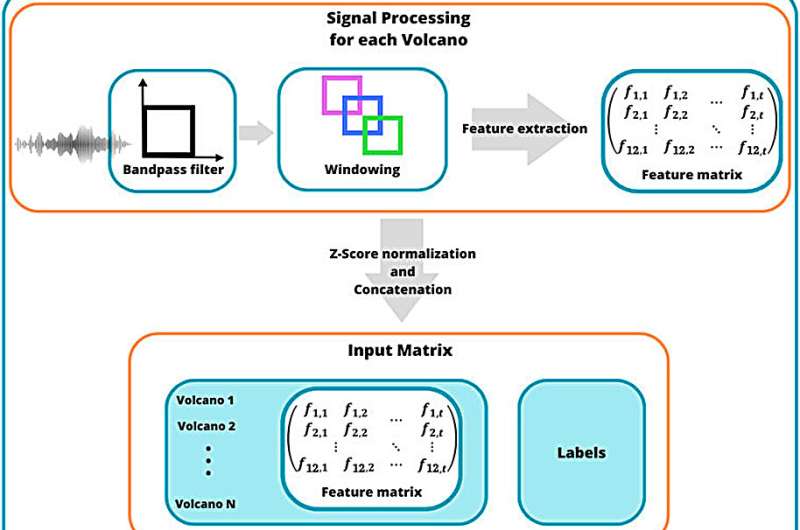
A team of physicists, geologists and signal theorists from the University of Granada, Spain, has developed a machine-learning-based algorithm designed to predict when Mount St. Helens will erupt.
In their study, published in the journal Frontiers in Earth Science, the group built their algorithm and used it to predict past eruptions using past data.
Scientists have for many years been trying to predict when a given volcano will erupt—as part of that effort, they have installed sensors on and near volcanoes to learn more about the types of volcanic activity that lead to eruptions.
Thus far, such efforts have failed to be of much use. It is still not possible to predict an eruption beyond a day or two because there is so much conflicting data. Some signals that might indicate an imminent eruption for one volcano may mean nothing for another.
In this new effort, the research team improved their odds of predicting eruptions by studying a single volcano, Mount St. Helens, located in Skamania County Washington, in the U.S.
The work involved collecting as much data as possible for the volcano recorded over many years, including prior to and during the massive eruption of 1980—one of the mightiest volcanic eruptions to have occurred in modern times in North America. It was also one of the deadliest and most economically destructive.
The researchers used the data to train a machine-learning algorithm, hoping it would find patterns that human researchers have missed. They also added math formulas designed to seek meaning from earthquake signals, such as the amount of pressure building up, or energy stored.
The researchers then trained the algorithm with data from several eruptions and prompted it to predict whether an eruption was imminent prior to those earlier eruptions. The team found their algorithm to be 95% accurate in predicting past eruptions at least three days in advance.
The new effort comes as other teams monitoring the volcano report that it’s exhibiting behavior that might be indicative of another impending eruption—350 earthquakes since February, many of which were centered miles below the crater floor.
More information:
Pablo Rey-Devesa et al, Universal machine learning approach to volcanic eruption forecasting using seismic features, Frontiers in Earth Science (2024). DOI: 10.3389/feart.2024.1342468
© 2024 Science X Network
Citation:
Machine learning algorithm proves to be highly accurate in predicting Mount St. Helens eruptions (2024, July 1)
retrieved 1 July 2024
from https://phys.org/news/2024-07-machine-algorithm-highly-accurate-mount.html
This document is subject to copyright. Apart from any fair dealing for the purpose of private study or research, no
part may be reproduced without the written permission. The content is provided for information purposes only.




